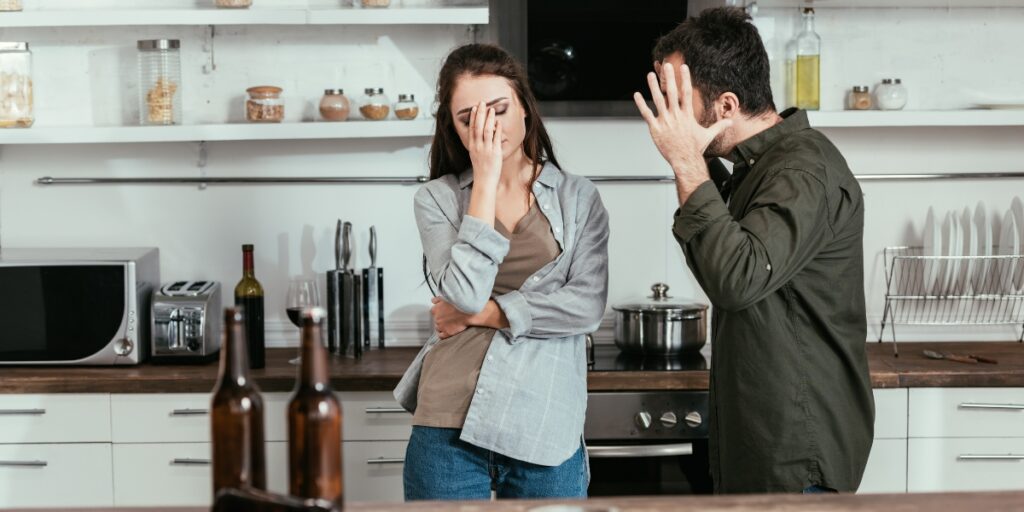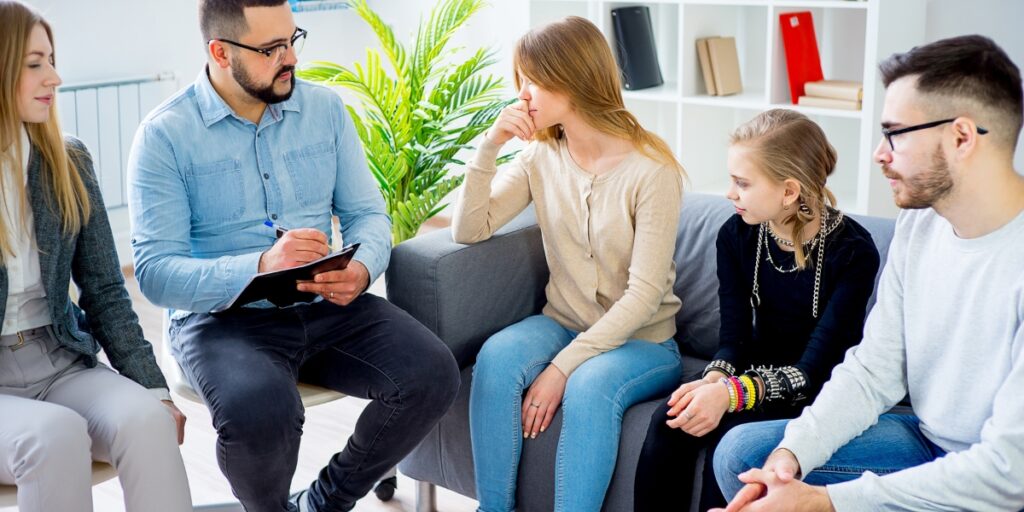Enabling Addiction

What Does Enable Mean?
Enable means to make something possible by providing resources or support that couldn’t happen without those things. The person giving those additional abilities and opportunities is called an enabler.
For example, parents paying college tuition can enable a student to focus on their studies without worrying about balancing a job or being able to afford necessities, a type of positive enabling that can have long-term benefits. However, suppose the same student fails college because of drinking or using drugs. In that case, their parents allowing them to move home and continue to party without any responsibilities is harmful enabling.
It is natural to want to help loved ones when we can; however, enabling can do more harm than good in some cases, especially when it comes to someone struggling with addiction.
What Is an Enabler in Addiction?
Enablers in addiction are typically family members, friends, or partners financially supporting or contributing to a loved one’s addiction through other means.
Addiction enablers are not typically intentionally promoting or condoning the substance abuse problem. Instead, they feel like they are helping or protecting the addicted person from themselves or outside, unknown dangers. Recognizing and stopping enabling behaviors can be as challenging as overcoming drinking or using drugs.
In some cases, enablers will drink or use drugs with someone struggling with substance abuse because they are in denial about the severity of their loved one’s condition. “One beer won’t hurt” can quickly become binge drinking.
Studies demonstrate a strong link between being codependent and enabling alcohol or drug addiction, especially among the children of people with substance use disorders. Often, taking care of the addicted person becomes a person or family’s entire identity and purpose. The principles of effective addiction treatment include family therapy to address how dysfunction contributes to addiction.
Enabling behaviors can be divided into four types:
- Hope-Based Enabling
This type of enabling is essentially terminal optimism; it centers on small glimmers of hope and improvement from the addicted person and allows addiction enablers to believe they can love the person into recovery. - Fear-Based Enabling
Addicts can be volatile and often resort to threatening to harm themselves or resort to emotional or physical abuse to get what they want from people. Enablers prefer avoiding confrontation or risking their safety by anticipating and providing what the addicted person wants before it escalates. - Guilt-Based Enabling
Many addicts blame their addiction on something a loved one did or didn’t do in the past. The enabler tries to alleviate their guilt by supporting or excusing the addict and blaming themselves for the addiction. - Victim-based Enabling
Drinking or using drugs is a typical response to experiencing trauma or tragedy. Family members of addicts will rationalize that the substance abuse problem is acceptable, considering what the person has experienced. The victim mentality removes responsibility from the addict and frames them as bystanders or victims of circumstance.
Enablers often confuse their actions with providing support, but they are different. Ultimately, recovery from addiction becomes less likely if the cycle of enabling is allowed to continue.

How to Know When You’re Enabling Addiction
The best way to recognize when you’re enabling addiction is to learn what enabling behaviors look like and take a step back to evaluate your and your family members’ behaviors and habits.
Signs you are enabling a loved one’s addiction include:
- Ignoring, minimizing, or denying the severity of the substance abuse problem
- Shielding them from consequences by bailing them out of jail, repairing damages they caused, or calling in favors to help them out
- Providing financial support in the form of rent, car payments, or paying other bills
- Giving them money, transportation, or shelter to get and use drugs
- Sacrificing your financial, physical, and mental health and well-being in favor of supporting them
- Blaming other people or circumstances for the addict’s actions
- An inability to follow through on ultimatums and hold boundaries
Addict Enabler Quotes
Quotes from addict enablers are often heartbreaking and shine a light on the thought processes that led them to become an enabler.
The following are quotes from friends, family members, loved ones, and experts about enabling addiction.
“If only I take really good care of her, maybe she’ll be able to take care of me someday.” -Ashley, a 15-year-old talking about taking care of her alcoholic mother.
“Your dad is just sick; he needs his medicine.”-A mother to her young children about their addicted father.
“I felt like it was better if they got high at home. In case of an accidental overdose or something, I’d be there to help.”-Stephanie Link, mother of an addict.
“Enablers have a warped sense of responsibility and feel extremely guilty not enabling, even though they’re not responsible for the problems caused by others.” -Author Darlene Lancer
“Enabling is the mortal enemy of consequences.”-Substance abuse counselor and author D.C Hyden.
“The problem with loving an addict is that sometimes the things that will help them would seem hurtful, cold, and cruel if they were done in response to non-addicts.”-Author and wife of an addict, Karen Young
How to Stop Enabling an Alcoholic or Addict
To stop enabling an alcoholic or an addict, you may need to find treatment programs and support for yourself and them.
Steps you can take to stop enabling an alcoholic or addict include:
- Establish and enforce boundaries and consequences
- Stop providing financial support
- Make them experience the legal, social, and financial consequences of their actions
- Create physical distance by refusing to be in the same place
- Don’t react to their attempts to persuade or argue with you
- Attend support groups for the family members of addicts
- Receive individual counseling to address enabling behaviors and learn healthy coping skills
One of the most important things you can do is realize that addiction is a disease, not a choice. You will not be able to convince someone to stop being addicted to drugs or alcohol. However, contacting professionals and holding an intervention to offer addiction treatment may help your loved one overcome their addiction. Studies show that substance users respond better to moderated conversations offering practical support over aggressive confrontations about their addiction.
Often, residential treatment is the best option for everyone, as it creates the necessary space and time apart for family members and the addict to work on learning and fixing their boundaries and coping skills independently.

Individualized Substance Use Disorder Treatment
If your loved one is struggling with addiction, finding them professional, individualized substance use disorder treatment is one of the best things you can do to help them.
Northridge Addiction Treatment Center is a private residential facility offering a peaceful and nurturing environment for our residents to focus on their unique recovery needs away from complicated family dynamics and habits.
Using cognitive behavioral therapy, family therapy, dual diagnosis, and other evidence-based treatments and therapies, we uncover the roots of addiction and instill the confidence to establish independence and healthy coping skills to handle future challenges.
Allow us to help you begin a fulfilling, lifelong recovery. Contact our treatment specialists now; we are eager to discuss your treatment options.
Find Meaningful Recovery
Our caring and compassionate specialists are eager to help you comfortably navigate this journey to recovery. Our individualized treatment plan, programs, and therapies may be a perfect match for you or your loved one. Let us assist you in living the happy life you deserve. It starts with a phone call.




